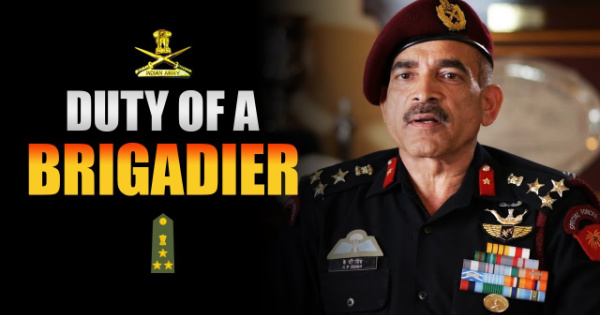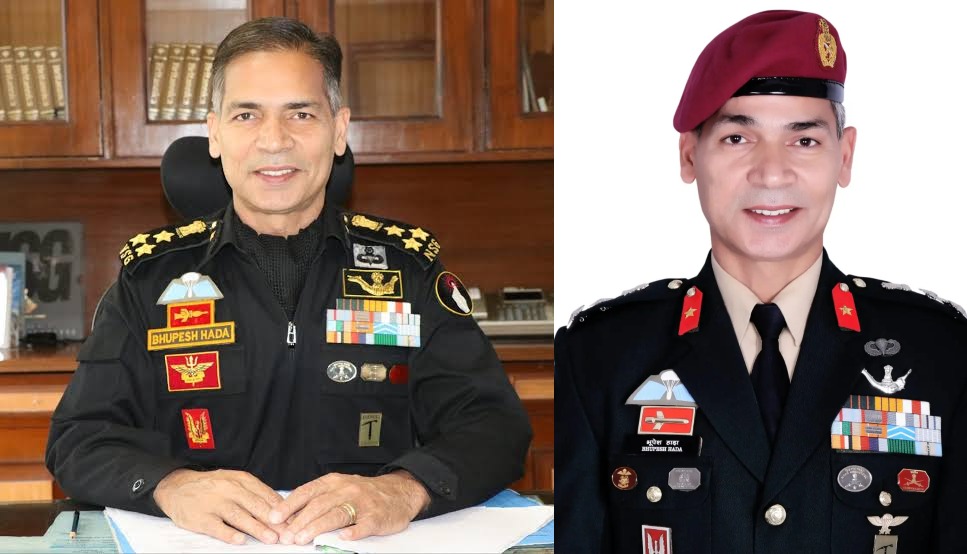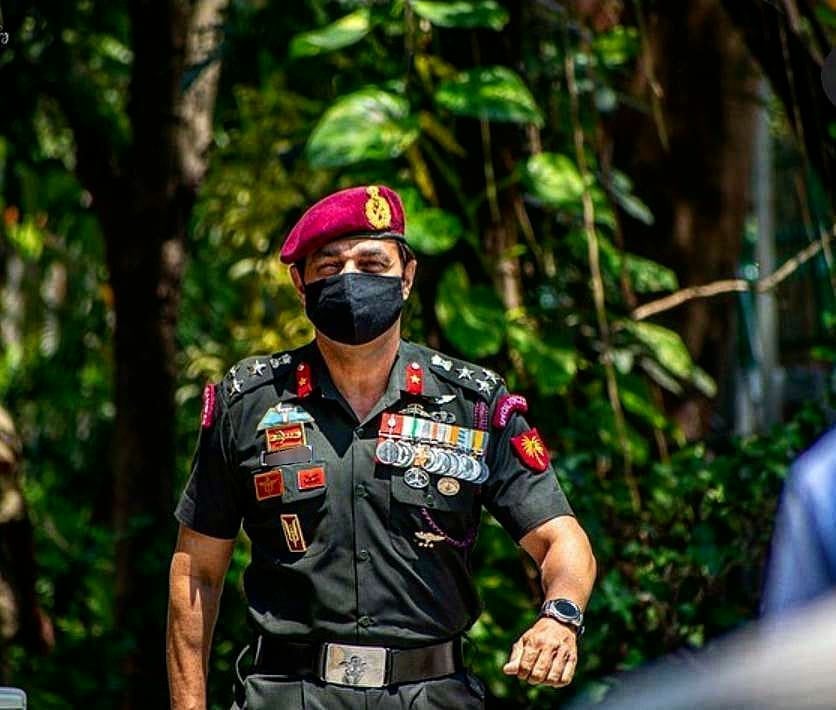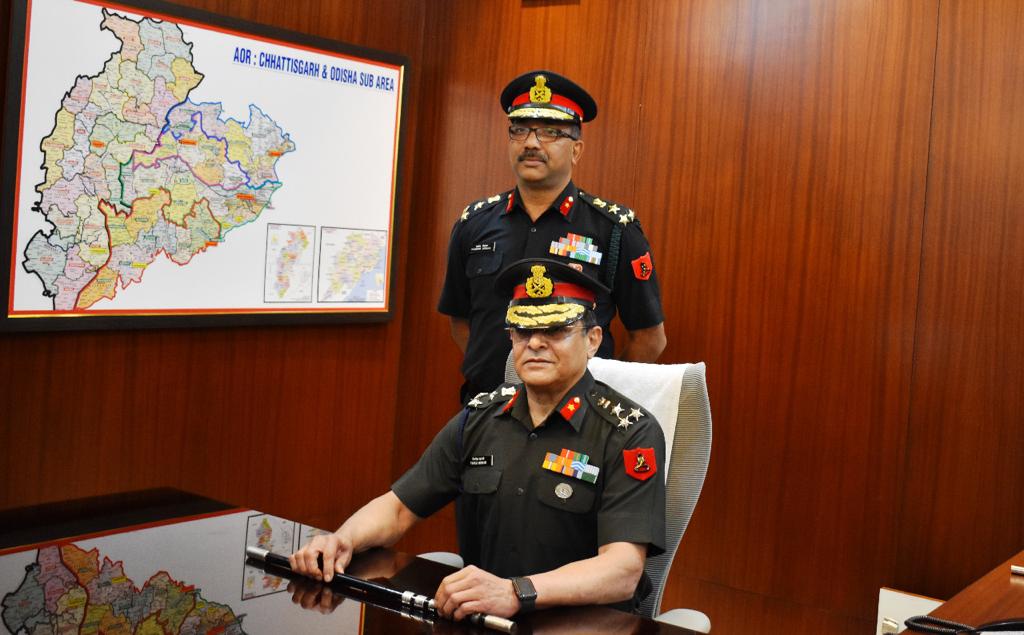Brigadier is a high officer rank in the Indian Army with major duties in military command and administration. This article describes a Brigadier’s duties and responsibilities, emphasising their critical role in maintaining discipline, directing troops, and working with higher-ranking officers.
History of Brigadier Rank
Colonel K. M. Cariappa made history on November 1, 1944, when he became the first Indian to be elevated to the rank of Brigadier. Instead of being appointed as a brigade commander, he was appointed to the Army reorganisation committee. On May 1, 1945, he was officially promoted to the regular rank of Brigadier. Brigadier was a temporary appointment rather than a substantive rank at the time.
Appointment of a Brigadier
Officers with the rank of Brigadier hold important posts and duties in the Indian Army. They command brigades and hold critical staff positions at Corps headquarters such as Brigadier General Staff (BGS) and Brigadier Administration (Brig Adm). Officers of the rank of brigadier are also appointed as military attachés and military advisors to India’s high commissions and embassies around the world. Brigades serve as deputy director generals of directorates and branches at Army headquarters, contributing to the organization’s overall operation and management.
Insignia of a Brigadier
The National symbol is placed atop three five-pointed stars grouped in a triangular pattern on the insignia of a Brigadier in the Indian Army. The uniform of a Brigadier contains gorget patches, which are red patches with a single golden star.
Duty of a Brigadier
Command and Leadership
- Leading Brigades: A Brigadier is responsible for commanding a brigade, which typically consists of several battalions. They provide guidance, and strategic direction, and ensure effective coordination between various units under their command.
- Operational Planning: Brigadiers play a vital role in operational planning, including the formulation and execution of tactical operations. They analyze intelligence, assess resources, and develop strategies to achieve military objectives.
- Training and Readiness: Brigadiers oversee the training and preparedness of their units. They ensure that soldiers receive appropriate training, maintain high levels of combat readiness, and are proficient in the use of weapons and equipment.
Administrative and Logistics
- Personnel Management: Brigadiers manage the personnel under their command, which includes officers, soldiers, and support staff. They supervise personnel assignments, and career development, and address welfare issues.
- Discipline and Morale: Maintaining discipline and morale within the brigade is a crucial responsibility of a Brigadier. They enforce military regulations, address disciplinary matters, and foster a positive and motivated environment.
- Logistics Support: Brigadiers coordinate with logistics units to ensure the availability of essential supplies, equipment, and resources for their brigade. They assess logistical requirements, plan for transportation, and oversee supply chains.
Liaison and Coordination
- Inter-Army Coordination: Brigadiers collaborate with officers from other branches of the military to coordinate joint operations and achieve synergistic outcomes. They establish effective communication channels and facilitate cooperation between different units and branches.
- Civil-Military Relations: Brigadiers act as a liaison between the military and civil authorities, representing the army in various civil-military coordination meetings and initiatives. They ensure effective communication, cooperation, and support during times of emergencies or natural disasters.
- International Cooperation: Brigadiers may also be involved in international military cooperation and engagements. They participate in multinational exercises, exchange programs, and diplomatic engagements to foster international relations and promote defence cooperation.
Staff and Advisory Roles
- Staff Appointments: Brigadiers serve in various staff appointments at different levels of command. They provide expertise, advice, and recommendations on military operations, logistics, intelligence, and strategic planning.
- Policy Development: Brigadiers contribute to the formulation and implementation of military policies and doctrines. They provide inputs based on their operational experience and collaborate with higher-ranking officers in shaping the army’s strategic direction.
- Mentorship and Guidance: Brigadier’s mentor and guide junior officers, imparting their knowledge and experience. They facilitate professional development, provide leadership guidance, and help groom future leaders of the Indian Army.
Brigadier duty in the Indian Army entails a wide range of responsibilities that necessitate excellent leadership abilities, operational insight, and administrative expertise. They lead brigades, maintain discipline, coordinate with many stakeholders, and contribute to the army’s overall strategic and operational success. A Brigadier’s position is critical in preserving the Indian Army’s efficacy and efficiency in ensuring the nation’s security.
To crack the SSB Interview, You can join our SSB interview live classes batch and we recommend you to Enroll SSB INTERVIEW ONLINE COURSE. Trusted by thousands of defence aspirants.
Also read:










